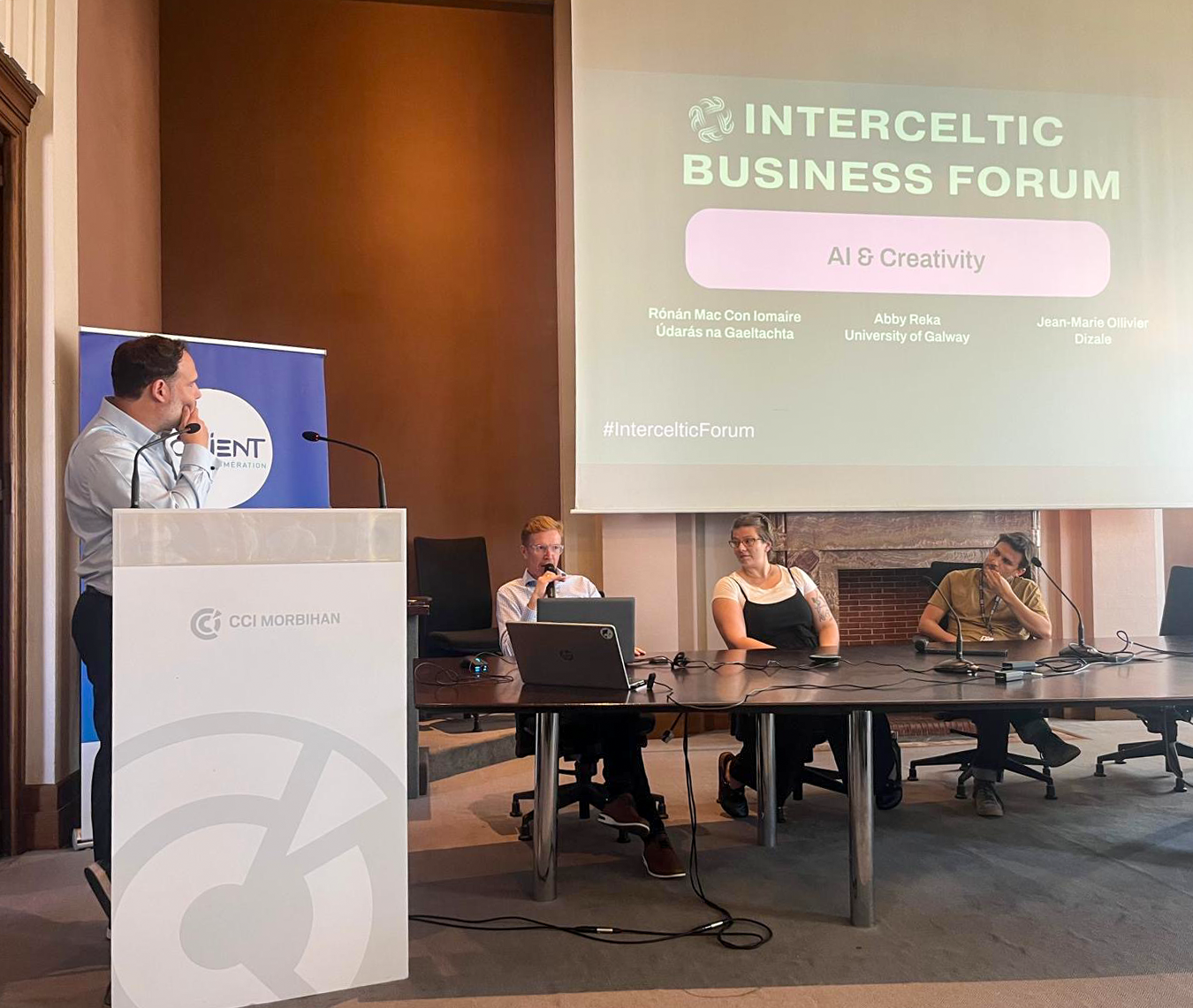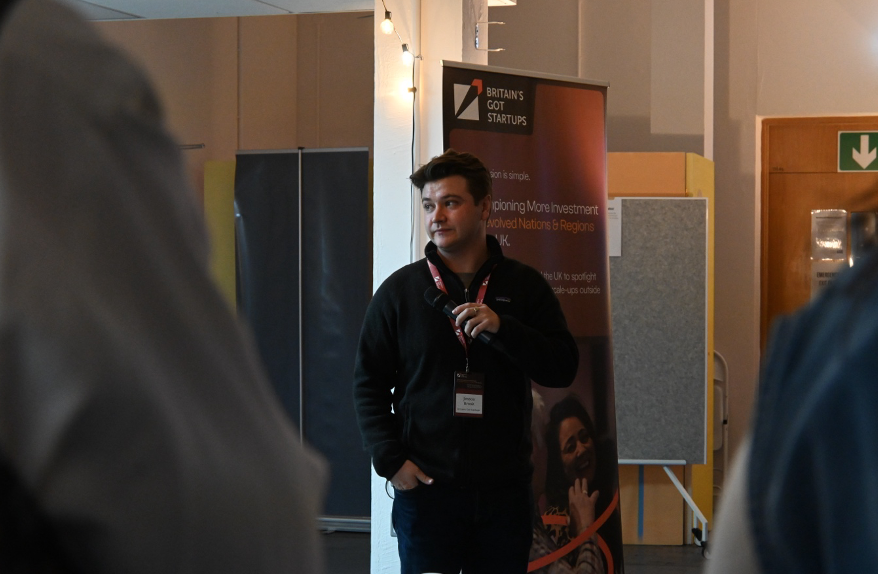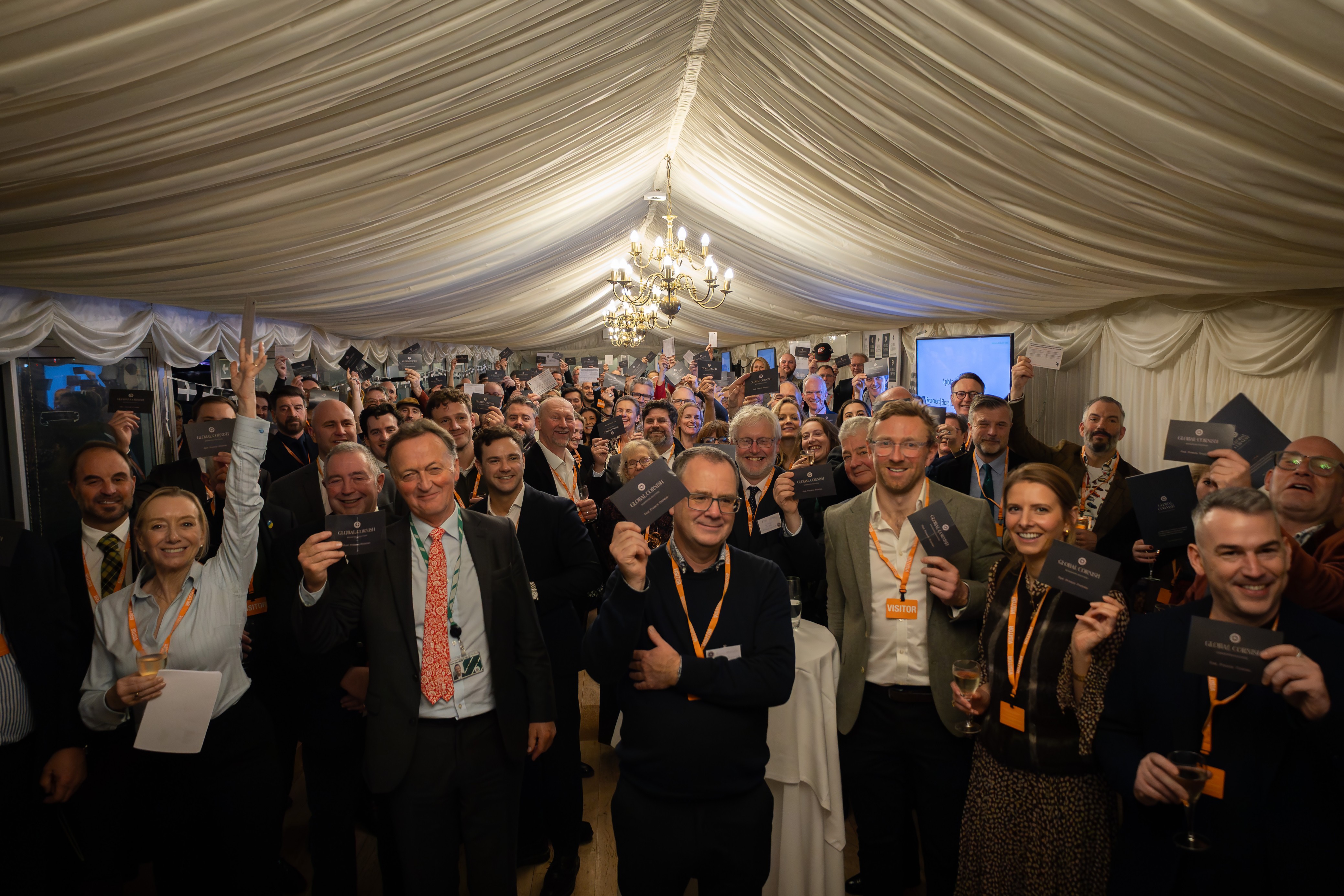
At the Interceltic Business Forum in Lorient, the challenges and opportunities of AI for minority languages like Irish and Breton were laid bare — highlighting the urgent need to ensure linguistic relevance in an English-dominated digital future.
The almost but not-quite-realised potential of artificial intelligence stood to one side of the room on the upper floor of the CCI du Morbihan building. While tourists outside on the sun-drenched quays of Lorient listened to music from across the Celtic nations, attendees of the Interceltic Business Forum listened to presenters speak on a wide range of topics.
Those who couldn’t understand the language of the speaker could look at the screen to the right of the stage where live AI-driven translation gave an approximation of the topic at hand.
Translation from French to English and vice-versa proved somewhat clumsy but effective. However, translating to any of the Celtic languages spoken by contributors was both a non-starter and a convenient reflection of the challenges discussed in the session titled AI & Creativity.
The panel consisted of myself, Jean-Marie Ollivier of Dizale, a Breton audiovisual non-profit based in Quimper, and Abby Reka, a lecturer with the University of Galway in the west of Ireland, who has a specialist interest in AI from the perspective of copyright. Jean-Marie spoke of the potential of AI for the Breton audiovisual sector, along with the threat of linguistic redundancy posed by an AI world in which Breton has not been embedded.
Abby laid bare the stark moral issues of AI’s insatiable appetite for information, scraping its way through human-generated content with little or any compensation coming the way of the creator. She also raised interesting doubts around future use cases for the technology that is currently seeing billions being invested into it.
The level of investment into AI (over $100billion in 2024 alone) makes adoption almost inevitable, however, even if what an AI-enabled society will look like, from an economic and social perspective, is as yet unclear. We can see where the technology is going, we have an idea of what the use cases will be but the tools and resulting impacts are not entirely clear yet.
I work for an organisation called Údarás na Gaeltachta and from our perspective, there is an urgency about AI and the Irish language that is less about tools and more about relevancy. Údarás na Gaeltachta is responsible for the economic, community and linguistic development of Ireland’s Gaeltacht regions, the areas of Ireland in which Irish is still spoken as a daily community language. While these areas are mostly on the remote periphery of Ireland, Údarás’s intervention over the past 45 years has meant that highly-skilled, innovative employment across a wide range of sectors is available on these far-flung western shores of Europe.
But with the tumult of AI coming our way, and its potential upheaval of the entire knowledge economy, Údarás na Gaeltachta is left with a simple question, as should be any organisation with a responsibility towards minority languages, or low-resource languages as they are known in digital parlance.
What can we do to ensure that Irish is relevant in a society and economy driven by English-language-built Large Language Model AI tools?
The question doesn’t arise particularly for widely-spoken languages, as economic imperatives will ensure their place in future AI systems and tools. But smaller languages need to get proactive or get left behind. If we don’t put our thumb on the scale now, we could be left with a scenario in five years where substantial amounts of knowledge work is being driven by agentic AI, fluent in English with a pidgin equivalent of Celtic languages. That will very quickly result in linguistic redundancy, as people lean towards using tools that produce and accelerate work, and ignore tools that are strong on intent but not ability.
Accordingly, Údarás na Gaeltachta is currently driving the Irish Government’s Irish language AI strategy, ensuring a comprehensive public corpus of Irish text and speech data with which to train AI engines. We are developing the Common Voice project to crowdsource Irish speech recording across all dialects, along with ensuring open-source licensing for AI development.
Building on that work, we are also working with Irish government departments in developing Irish language AI services for government, assisting them in supporting obligations under the Official Languages Act, along with enabling public servants to interact with AI tools through Irish in their local dialect.
AI can potentially herald a new era for lesser-used languages, with content creators free from the shackles of expensive equipment and training, professional services unhindered by monolingual enterprise software and small businesses having access to the equivalent knowledge and potential of their own R&D department.
Without the foundational work currently being carried out by Údarás na Gaeltachta and its low-resource language equivalents around the globe, this potential new dawn for under-threat languages has a dark flip side. A world where English and Mandarin are the default lingua franca of AI. Where the Celtic languages of Ireland, Scotland, Wales, Cornwall, Brittany and the Isle of Man and the other 6,500 low-resource languages exist as half-baked nice-to-have additions. Where these languages exist in the context of AI only as marginally-less-than-useless options. Where the language I grew up speaking on the west coast of Ireland becomes irrelevant.
I don’t know what an AI-driven world is going to look like over the coming decade, but I do know that I want to participate in it in my native language, whether through business, culture or community. Now is the time to ensure that we and the generations ahead of us have that choice.
If you are looking to shape the future, and reduce the digital divide, let us know here!
Can AI Help Preserve Endangered Languages? Watch the video

Jenson Brook, founder of Novus Capital, shares his approach to supporting innovative startups and expanding access to funding beyond London.
Read More
La startup lorientaise Fendsea entre dans une nouvelle phase de croissance, portée par son développement commercial et son expansion internationale.
Read More
On 15 December, we officially launched Global Cornish at Westminster, bringing together nearly 200 Cornish diaspora from business, politics, culture, and sport.
Read More
Dirigeants bretons, développez votre réseau interceltique. Découvrez pourquoi et comment participer à l’Interceltic Business Forum 2026 à l’Île de Man.
Read More